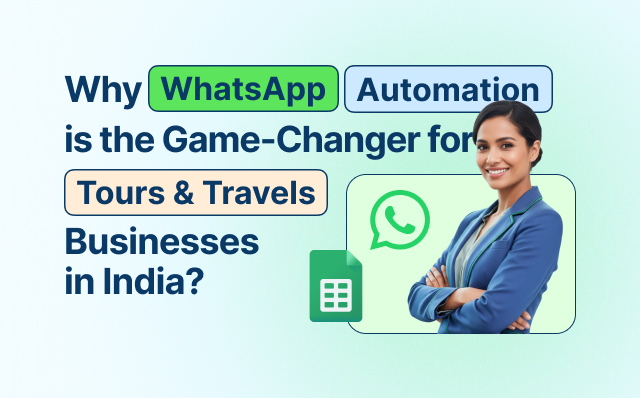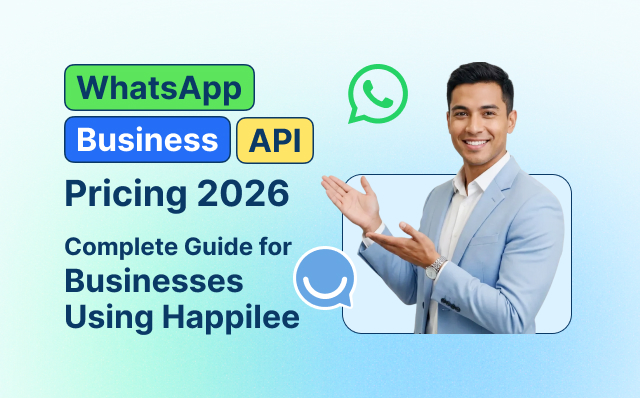Conversational marketing has become a powerful strategy for businesses to engage with their customers in the digital age. Real-time, personalized interactions foster stronger connections and ultimately drive revenue. There are two major players in the conversational marketing arena: Google RCS Messaging and WhatsApp Business API.
Understanding Google RCS Messaging
In Rich Communication Services (RCS), SMS messages are enhanced with advanced features such as read receipts, typing indicators, and high-resolution media sharing. RCS Messaging is Google’s initiative to bring these features to Android devices, replacing traditional SMS with a richer and more interactive messaging experience. As RCS adoption increases, businesses will have more opportunities to engage with customers effectively. Utilizing its potential in your marketing strategy depends on understanding its capabilities.
Understanding WhatsApp Business API
WhatsApp Business API is a business-oriented version of the WhatsApp messaging platform. Businesses can use it to engage with customers on a large scale with features like automation, chatbots, and integrations with customer relationship management systems (CRMs). WhatsApp Business API provides businesses with a versatile platform for conversational marketing. A business looking to connect with customers on a personal level will find it a great choice thanks to its extensive features, global reach, security, and engagement capabilities. You can harness the full power of WhatsApp Business API in your marketing strategy by understanding its features and potential applications.
Comparing Google RCS Messaging and WhatsApp Business API for Conversational Marketing
Let’s evaluate these platforms in key areas to determine which is best for conversational marketing:
1. Reach and Audience:
- Google RCS Messaging: RCS is primarily available on Android devices and is provided by carriers. Adoption may vary depending on location and carrier support, although it is likely to reach a large number of Android users.
- WhatsApp Business API: The WhatsApp Business API boasts a global user base of over 2 billion monthly active users. Businesses seeking to engage a wide range of customers prefer it for its wide reach across Android and iOS platforms.
2. Features and Interactivity:
- Google RCS Messaging: RCS offers rich features like read receipts, typing indicators, and media sharing. In this way, companies can engage with their customers in a visually appealing manner by sending interactive messages.
- WhatsApp Business API: WhatsApp provides a comprehensive set of features, including chatbots, automated responses, and the ability to send multimedia content. Personalized and interactive experiences can be offered to businesses using its robust features.
3. Automation and Integration:
- Google RCS Messaging: RCS currently lacks the advanced automation and integration capabilities that WhatsApp Business API offers. Even though RCS is evolving, it may not be the best choice for businesses seeking seamless integration with their CRM systems and automation applications.
- WhatsApp Business API: WhatsApp excels in automation and integration. This software allows businesses to streamline conversational marketing by automating responses, managing customer interactions at scale, and integrating with CRM systems.
4. Security and Privacy:
- Google RCS Messaging: In order to ensure user privacy and security, Google RCS Messaging uses encryption protocols.
- WhatsApp Business API: WhatsApp has a reputation for being a highly encrypted app and for respecting the privacy of its users. Due to WhatsApp’s end-to-end encryption, messages are highly secure.
5. Cost Considerations:
- Google RCS Messaging: The cost associated with using Google RCS Messaging can vary depending on your carrier and location. Depending on the provider, RCS messaging includes standard plans or charged separately. To make sure you’re aware of the costs for your particular application, you need to do a bit of research.
- WhatsApp Business API: WhatsApp Business API typically comes with associated costs, including an application fee and per-message fees. In spite of these costs, businesses often find value in the platform’s extensive reach and engagement capabilities. As you assess the cost factor, consider your budget and the potential return on investment.
6. User Experience:
- Google RCS Messaging: RCS messages aim to provide a rich user experience by allowing businesses to send high-resolution images, videos, and interactive content. It can be advantageous in industries like fashion, travel, and e-commerce, which heavily rely on visual communication.
- WhatsApp Business API: WhatsApp Business API allows you to share multimedia, documents, and voice messages using an intuitive user interface. A popular platform can enhance the effectiveness of conversational marketing campaigns by improving the user experience.
7. Geographic Considerations:
- Google RCS Messaging: The availability of Google RCS Messaging can vary by region and depends on carrier support. Businesses should assess whether their target audience prefers Android devices and whether RCS is widely adopted in their region before committing to RCS messaging.
- WhatsApp Business API: Businesses looking to reach audiences in various countries can use WhatsApp Business API because of WhatsApp’s global presence. It’s available on both Android and iOS platforms, providing a broader geographic reach.
8. Customer Preference:
- Google RCS Messaging: Customer preferences play a crucial role in determining the effectiveness of your marketing strategy. WhatsApp’s familiarity and reliability may appeal to some users, while RCS’s visually rich experience may appeal to others.
- WhatsApp Business API: WhatsApp’s widespread adoption means that many users are already comfortable with the platform. This familiarity can lead to higher user engagement and trust in your brand.
Making an Informed Choice for Conversational Marketing
It depends on your business’s specific goals and needs whether to use Google RCS Messaging or WhatsApp Business API. The WhatsApp Business API is generally preferred because of its extensive feature set, global reach, automation capabilities, and strong security and privacy measures. Your conversational marketing strategy may also benefit from Google RCS Messaging if you are primarily targeting Android users and seek a more visually engaging experience.
Your final decision should be based on your target audience, desired features, and integration requirements. It is even possible for some businesses to leverage both platforms to maximize their reach and engagement potential. In order to create meaningful, interactive, and profitable conversations with your audience, you must align your choice with your business objectives and customer preferences.
FAQ
1. What is Google RCS Messaging, and how is it different from traditional SMS?
Google RCS Messaging is a communication protocol that enhances standard SMS messages by adding features such as high-resolution media sharing, typing indicators, and read receipts. RCS provides a more interactive and engaging messaging experience than traditional SMS.
2.Can I use Google RCS Messaging for marketing and customer service purposes?
The Google RCS Messaging service can be used for marketing campaigns and customer support. Using it, businesses can send visually appealing content and engage with customers in real-time.
3.Do all Android users have access to Google RCS Messaging?
Google RCS Messaging’s availability may vary depending on your location and carrier support. It’s designed for Android devices, but its adoption may vary by region.
4.How does WhatsApp Business API differ from WhatsApp?
WhatsApp Business API is a business-oriented version of WhatsApp. Features include automation, chatbots, CRM integration, and the ability to reach a broader audience. Business communications can be made more effective with the help of this tool.
5.What is the level of security of WhatsApp Business API interactions?
Through end-to-end encryption, WhatsApp Business API ensures privacy and security. User trust is maintained by protecting messages sent and received.
6.WhatsApp Business API allows businesses to send promotional messages?
Businesses can send promotional messages through WhatsApp Business API, but they must follow WhatsApp’s policies and ensure customers have opted in.
7.Does WhatsApp Business API have any compliance requirements?
In order to maintain a presence on WhatsApp, businesses must follow the platform’s policies and guidelines. A smooth operation and trust among users are ensured by compliance.


